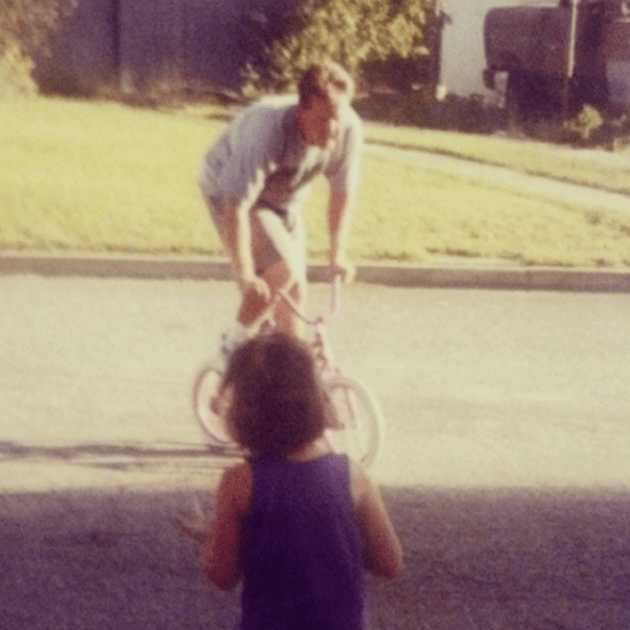
Growing up, I never felt like my family had many traditions. I remember talking about family traditions in my elementary classes, and everyone would share something fun like, doing a polar bear plunge on New Year's' Eve or going to Hawaii for Memorial Day. I always associated big things like that with the term "tradition", so I was surprised by my mom's response when I asked her about our own family traditions.
"We have dinner together every night," my mom said. "We also have family prayer every night."
At a young, sassy age, I rolled my eyes at her. "No, Mom. Like, real traditions."
My mom had a lot of answers like the ones she gave me. My sister and I practiced the piano every day, we rode our bikes around town with Dad, Mom always sang my sister and me to sleep and right before we went to bed she would hold our glow-in-the-dark pillows under the lamp to make them shine extra bright.
But all of that was normal to me. I wanted an exciting tradition, like the polar bear plunge or an expensive vacation.
What I didn't realize at the time, however, was what a difference those daily traditions really made for me. My parents made my siblings and me their priority, and that made me feel like I was on top of the world.
Turns out, daily traditions like the ones I had growing up can make a world of a difference as you raise your children. They can even be important than the annual traditions you share.
Here are five things you should be doing with your child everyday to make them feel loved:
1. Ask them about their day
Kids love to talk. You might not have all day, but setting aside time for each individual child to talk to you makes them feel loved and appreciated. Especially after they've been quietly behaving at school or at the sitter's all day, they deserve to say what they have to say.
This daily tradition will help them feel comfortable talking to you about anything -something you will appreciate (and most parents don't get) when they're teenagers.
2. Involve them in decision making
Decide with them what to wear for the day, what toys to play with, what they want in their lunch and what chores they're going to do. Especially at a younger age, giving them a couple options will help them decide and feel important.
This not only teaches them about responsibility, it also demonstrates to your kids that you trust them. They will be happier knowing they have a little bit of independence. As they grow up making decisions, your children will be better decision-makers in the future.
3. Play with them
My parents always knew how to have fun. I loved to wrestle with my dad, but he also let me play with his hair and tie up what I could in bright, sparkly hair ties. When I played "house" and I wanted to be the mommy, my mom would be the daughter. When my big sister was learning how to ride her bike without training wheels, my dad took the small pink bike and rode it around himself.
Some parents are so afraid to be playful with their children, worried their kids won't be able to distinguish between parents and playmates, but your kids can. Be goofy with them so they feel comfortable being goofy with you.
4. Show physical affection
One day, when your kids are teens, they won't want to let you near them. So treasure the smooches and never-ending hugs while you can. There are countless studies that talk about the importance of physical touch with children. When your children are upset, hugging them can actually calm down the chemicals in their brain.
Actively reaching out to your children physically can also help emphasize the message you are trying to convey. When you take their hand and say, "I'm here for you," the message is received much more strongly.
Make getting ready for bed something your children look forward to. Sing their favorite songs while they change into their pajamas, give them fun toothbrushes, read some bedtime stories and tuck them into bed.
Some of my favorite memories as a kid are crowding around my dad on the bed while he read "Peter and the Starcatchers" and other books to us. Your children will always treasure up those special moments with you.
It's never too late to get started on these little daily traditions. They don't take up much time, but they will strengthen your relationship with your children. In years to come, your children will be thanking you for the traditions you established in their lives.


